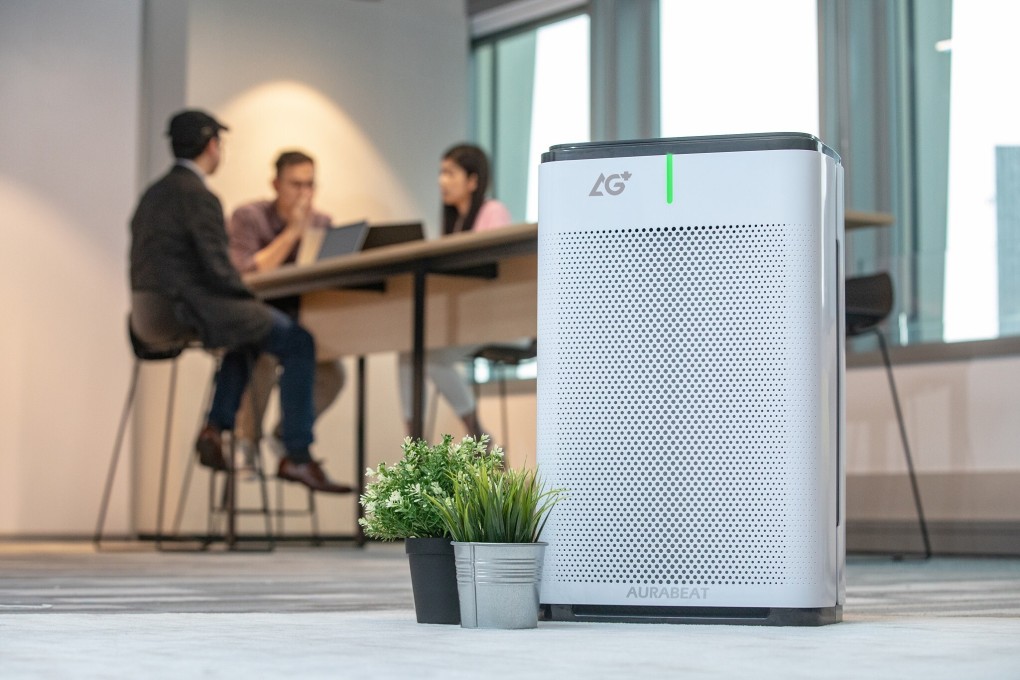Hong Kong start-up Aurabeat’s lab-tested purifier rids the air of 99.9 per cent of Covid-19 viruses. Is it enough for the real world?
- A stand-alone unit retails for HK$4,980 (US$642), while a portable model more suitable for personal space, such as a car’s interior, is priced at HK$1,280
- Consumer Reports recommended purifiers with a clean air delivery rate (CADR) of over 240 cubic feet per minute (cfm), which gives roughly five air exchanges per hour. Aurabeat’s stand-alone product has a CADR of 221 cfm, according to the company

Aurabeat Technology, a Hong Kong Science and Technology Park start-up, has joined the crowded air purifying device market with what it claims to be the only product independently tested for its capability to eliminate the coronavirus causing Covid-19.
The Pak Shek Kok-based company expects to close a US$2 million round of “seed” capital-raising soon, which would help bolster its war chest to develop international sales, chief executive Phil Yuen said in an interview with South China Morning Post.
“As far as we know, ours is the only one that passed a third-party test in a virology laboratory against the Covid-19 virus,” Yuen said. “Our product can eliminate 99.9 per cent of the virus, and the US Food and Drug Administration has cleared for it to be marketed as a medical-grade device during the ongoing public health emergency.”
Filter media treated by Aurabeat’s technology has reduced the virus that causes Covid-19 by 99.95 per cent within 30 minutes, Kansas City, US-based MRI Global said in a lab report early this month.
Its patented formula combines silver ion, plasma and ultraviolet light to capture and eliminate the virus by destroying its genetic material, Yuen said.
